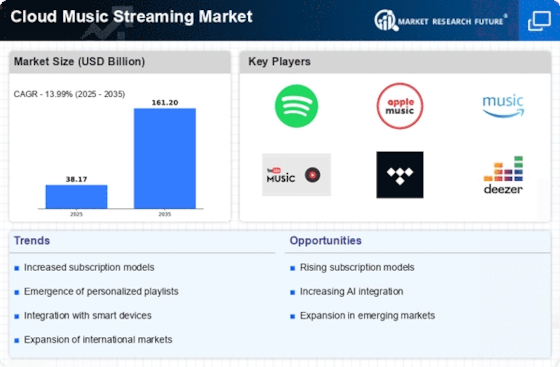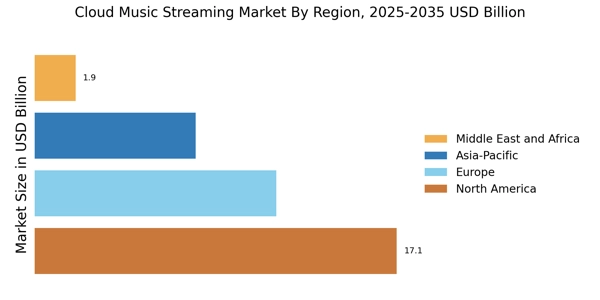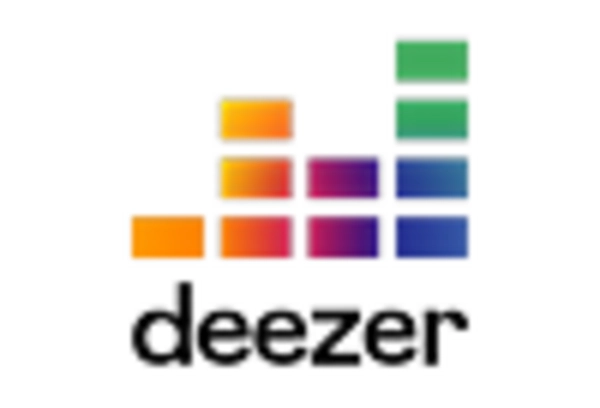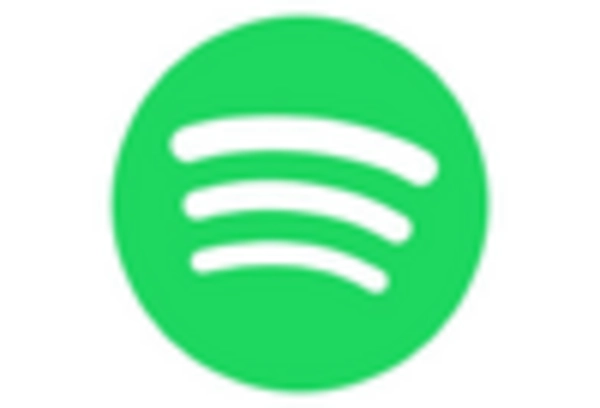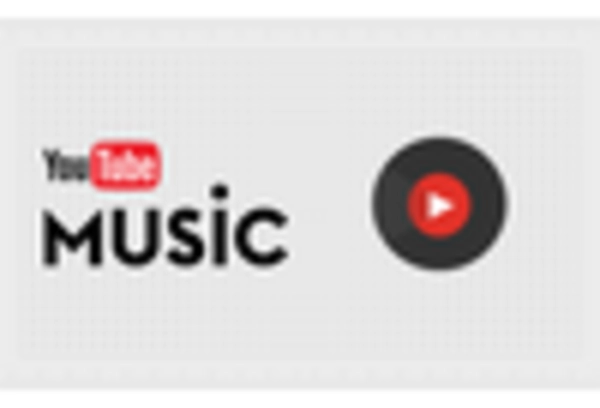Integration of Social Features
The integration of social features within music streaming platforms is emerging as a significant driver for the Cloud Music Streaming Market. Users increasingly seek platforms that allow them to share music, create collaborative playlists, and engage with friends. As of 2025, it is observed that platforms incorporating social elements experience higher user retention rates, with a reported increase of 25% in active users. This social interaction not only enhances the user experience but also encourages word-of-mouth marketing, which is vital for attracting new subscribers. The focus on community-building features is likely to play a crucial role in the sustained growth of the Cloud Music Streaming Market.
Increased Smartphone Penetration
The proliferation of smartphones has catalyzed the growth of the Cloud Music Streaming Market. As of 2025, it is estimated that over 80% of the population in developed regions owns a smartphone, facilitating easy access to music streaming services. This trend is particularly pronounced among younger demographics, who are more inclined to utilize mobile applications for music consumption. The convenience of streaming on-the-go has led to a surge in subscriptions, with the market projected to reach a valuation of approximately 30 billion dollars by 2026. This accessibility not only enhances user engagement but also encourages the adoption of premium services, thereby driving revenue growth within the Cloud Music Streaming Market.
Expansion of Internet Connectivity
The expansion of high-speed internet connectivity is a pivotal driver for the Cloud Music Streaming Market. With the advent of 5G technology, users experience faster download speeds and reduced latency, which significantly enhances the streaming experience. As of 2025, it is reported that over 60% of households have access to high-speed internet, a figure that continues to rise. This increased connectivity allows for seamless streaming of high-quality audio and video content, attracting more users to subscription services. Furthermore, the availability of affordable data plans encourages users to engage with music streaming platforms, thereby contributing to the overall growth of the Cloud Music Streaming Market.
Diverse Music Catalogs and Exclusive Content
The availability of diverse music catalogs and exclusive content is a crucial factor propelling the Cloud Music Streaming Market. Major platforms are investing heavily in acquiring licensing rights and producing original content to differentiate themselves in a competitive landscape. As of 2025, it is estimated that over 70% of users prefer platforms that offer exclusive releases and curated playlists. This trend not only enhances user satisfaction but also fosters brand loyalty, as consumers are more likely to subscribe to services that provide unique offerings. Consequently, the emphasis on exclusive content is likely to drive subscription growth and revenue within the Cloud Music Streaming Market.
Adoption of Smart Devices and Home Automation
The adoption of smart devices and home automation systems is significantly influencing the Cloud Music Streaming Market. As smart speakers and home assistants become commonplace, users are increasingly utilizing these devices to access music streaming services. By 2025, it is projected that over 50% of households will have at least one smart speaker, facilitating hands-free music playback and voice commands. This trend not only enhances convenience but also encourages users to explore various streaming options, thereby expanding the market. The integration of music streaming services with smart home technology is likely to drive user engagement and subscription growth within the Cloud Music Streaming Market.


